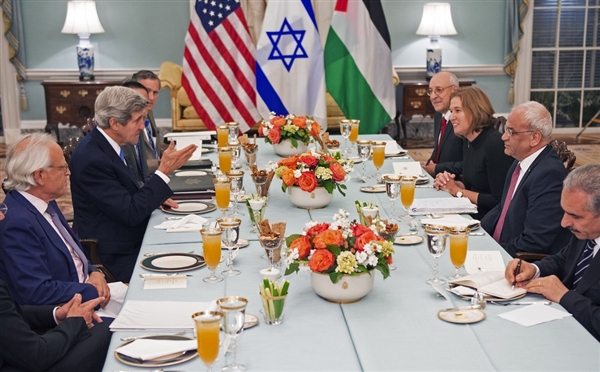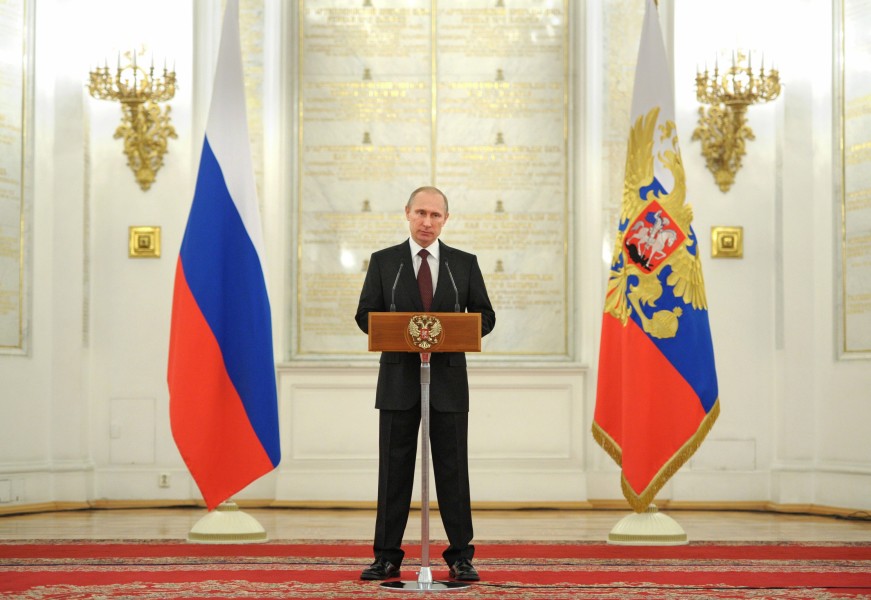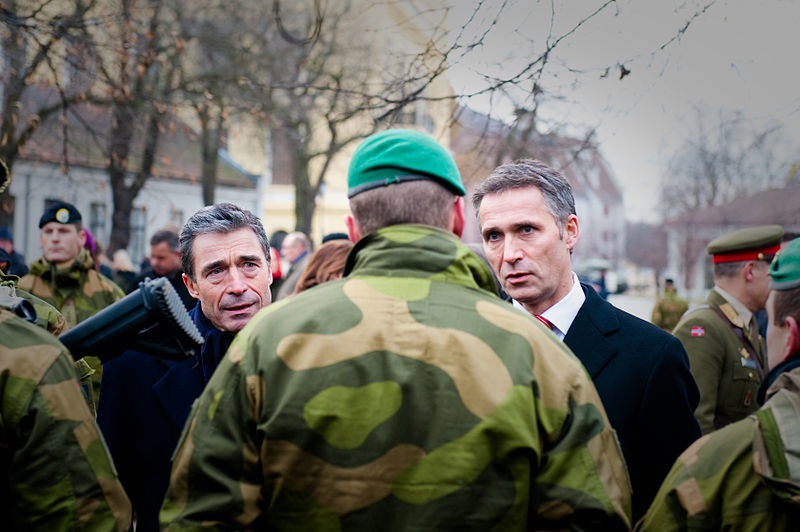The Israelis and the Palestinians are set to embark on another round of peace talks in the coming weeks. Each new round of negotiations re-opens the conversation about the protracted conflict and the core issues that stand in the way of peace.
It is easy to be skeptical of the success of these talks given the political stalemate that has prevented previous rounds from producing substantive results. However, that has not stopped people from contemplating what a negotiated settlement could look like. The question of how to maintain peace in the immediate aftermath of an accord between the Israelis and the Palestinians, and who could undertake such an enormous task, weighs heavily on the minds of both sides and the rest of the international community. This is not the first time NATO has emerged as a potential player in this intractable conflict’s resolution.
The Proposal
NATO’s role in the resolution of the Israel-Palestine conflict is hypothetical and rests on a number of assumptions. The most prominent of these assumptions is that the negotiators will ultimately opt for a two-state solution. The proposal views the Alliance as a “peace-enabling” force that would be deployed to the border between Israel and the newly created independent state of Palestine. The root of this proposal dates back to President Clinton’s attempt at peace in 2000 and was later reiterated in 2009 by President Obama’s National Security Advisor, James Jones.
The purpose of a NATO mission would be to assist in the implementation of a comprehensive Israel-Palestine peace accord by providing security (particularly against insurgencies), patrolling newly established borders, acting as a liaison between Israel and Palestine, and facilitating confidence-building between the two groups.
The provision of security early in a peace agreement will be critical to the long-term stability of both Israel and Palestine. Hamas’ conflict with Israel is a key roadblock to peace and, according to some, necessitates the presence of a third-party to ensure that a fragile peace is not spoiled by the militant organization.
[captionpix align=”left” theme=”elegant” width=”300″ imgsrc=”http://natoassociation.ca/wp-content/uploads/2013/08/2621067347.jpg” captiontext=””]
NATO’s Response: 3 Big “Ifs”
The Alliance’s response to the proposed mission can be best described as “lukewarm.” There is deep concern within NATO leadership that involvement in the Israeli-Palestinian issue could drag the Alliance into a “protracted quagmire” in which its member states have little to gain. For this reason, NATO has established three firm conditions for any peace-enforcement role in the conflict:
1) A comprehensive peace agreement between Israel and Palestine
2) Requests by both parties for NATO to help them with the implementation of their agreement
3) UN endorsement of NATO involvement
What a Palestine Mission Would Look Like
NATO researcher Dr. Florence Gaub has outlined two potential approaches to a NATO mission to Palestine. The first is a minimalist approach, which would see troops deployed to only Gaza and the West Bank, while the second is a less politically probable maximalist approach in which troops would be stationed in Gaza, the West Bank and Israel. According to Gaub, any mission would need to remain in the territories for at least 5 years in order to be successful.
The operational requirements for a NATO mission to Palestine are substantial. A minimalist approach would require a force of between 43,7000 and 76,000 troops, and would cost approximately $9.61 billion USD per year. A maximalist approach will cost significantly more in terms of both troops and funding. For the sake of comparison, the number of NATO troops in Afghanistan peaked at about 140,000.
The funding for such an expansive mission would almost certainly come from NATO members, the European Union, and the UN. It has also been suggested that Arab countries should be willing to support the mission financially given the enhanced stability it would provide to the region.
The Argument For: High Risk, High Reward
It would be naïve to suggest that NATO intervention in the Israeli-Palestinian issue would unequivocally garner positive results for the Alliance, in terms of mission success and an enhanced reputation for NATO. Even the most optimistic recognize that NATO involvement in any Israel-Palestine post-conflict future represents a clear high risk, high reward scenario. Those who may advocate for a NATO role in the conflict would likely see it as a means of ensuring the continuing relevancy of NATO as it expands its partnerships beyond the North Atlantic. As one Jordanian diplomat told Al-Monitor, “it is strategically impossible for the Atlantic Alliance to build relations with Middle Eastern countries without tackling the core issue, which is the Israel-Palestine issue.”
[captionpix align=”right” theme=”elegant” width=”200″ imgsrc=”http://natoassociation.ca/wp-content/uploads/2013/08/1208563818pro_israel_protest.jpg” captiontext=””]
Moreover, it seems clear that should an agreement be reached, a peace operation will almost certainly be required. Perhaps the best chance for success in this area lies with NATO. There are few other organizations with the experience and the capability of acting in this capacity. NATO is something of a natural fit given the involvement of the US and European countries in pushing for a peace settlement and NATO’s experience with peace operations in Bosnia-Herzegovina and Kosovo.
[captionpix align=”right” theme=”elegant” width=”200″ imgsrc=”http://natoassociation.ca/wp-content/uploads/2013/08/1376383526717.cached.jpg” captiontext=””]
It is also an opportunity, albeit one with high risk, to cement NATO’s reputation as a key player in global security and contribute to what would surely be a historical moment. The international community, and Western powers in particular, have long called for a decisive end to this perpetual conflict. It could therefore be argued that if the Israelis and the Palestinians were able to achieve something as monumental as a comprehensive peace agreement, these longstanding rivals deserve full Western commitment in ensuring a stable future.
Part II of this series will present the argument against a NATO peace operation in connection with the Israel-Palestine conflict.




